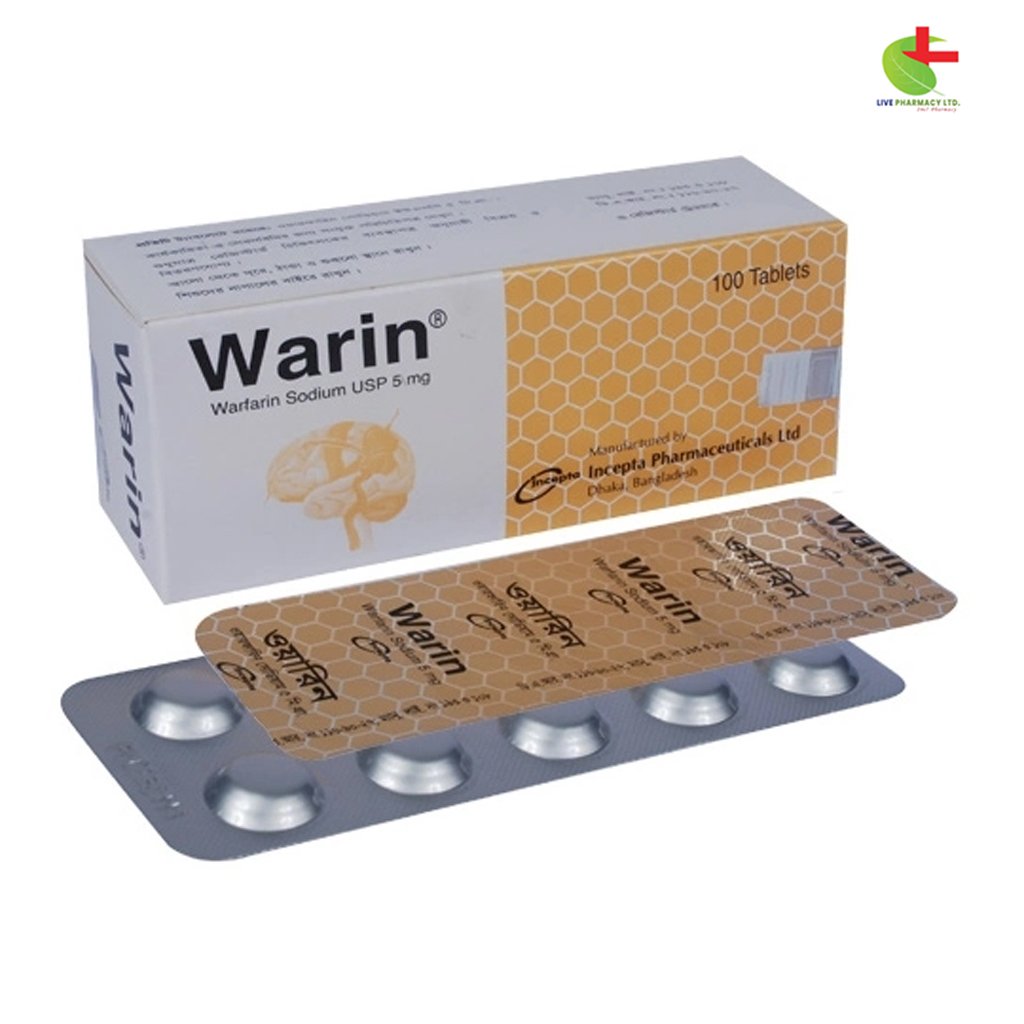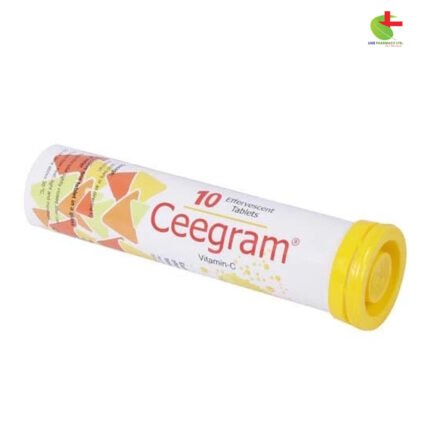Warin 5
30.00৳ Strip
- Warin is an oral anticoagulant used to prevent and treat thromboembolic conditions such as stroke, myocardial infarction, and venous thrombosis.
- It works by inhibiting the synthesis of vitamin K-dependent clotting factors, helping to prevent abnormal blood clot formation.
- Warin is commonly prescribed for conditions like atrial fibrillation, cardiac valve replacement, and pulmonary embolism.
- Regular monitoring of prothrombin time (INR) is essential during treatment.
 Brand
Brand
|
Incepta Pharmaceuticals Ltd |
|---|---|
 Generics
Generics
|
Warfarin Sodium |
 Type
Type
|
Tablet |
Indications
Warin is commonly prescribed for:
- Prevention and treatment of thromboembolic conditions, including those linked with atrial fibrillation or heart valve replacement.
- Reducing the risk of death and recurrent myocardial infarction, as well as preventing stroke or systemic embolization after a heart attack.
- Prevention and management of venous thrombosis and pulmonary embolism.
- Treatment for transient ischemic attacks (TIAs).
Always follow the advice of a registered healthcare professional.
Description
Warin is an anticoagulant medication that works by inhibiting the synthesis of vitamin K-dependent clotting factors, such as Factor II, VII, IX, and X. It typically takes around 24 hours to see the initial anticoagulant effects, with the peak effect occurring in 36-48 hours, and lasting up to 48 hours after discontinuation.
Pharmacology
As a vitamin K antagonist, Warfarin blocks the enzyme vitamin K epoxide reductase, preventing the recycling of vitamin K. This inhibition disrupts the production of coagulation factors, ultimately interrupting the blood clotting process. It takes about 2 days for new coagulation factors to be produced, and this contributes to Warfarin’s anticoagulation effect.
Dosage & Administration
For Adults:
- Initial dosage: 10 mg daily for the first 2 days.
- Maintenance dosage: Usually between 3 to 9 mg daily, adjusted according to INR (International Normalized Ratio) tests.
- In urgent situations, both heparin and Warfarin may be used together initially.
For Children:
- The safety and efficacy in patients under 18 have not been fully established. However, when used, an initial dose of 0.1 mg/kg/day is typically recommended, adjusted based on INR levels.
Always take Warfarin as prescribed by your doctor.
Drug Interactions
Warfarin interacts with a wide variety of medications and substances. Notify your healthcare provider of all drugs you are currently taking, including over-the-counter and herbal products. Certain drugs may either increase or decrease Warfarin’s effects, which could significantly affect treatment outcomes.
Contraindications
Warfarin should not be used in the following cases:
- Active or potential bleeding disorders (e.g., peptic ulcers or uncontrolled hypertension).
- Severe liver or kidney conditions.
- Pregnancy (especially in the first trimester).
- Known allergy to Warfarin.
- Bacterial endocarditis.
It is also not recommended within 24 hours of surgery or childbirth without medical supervision.
Side Effects
The main side effect of Warfarin is hemorrhage. Other potential side effects include:
- Nausea, vomiting, and diarrhea.
- Rash, hair loss, or skin necrosis.
- Liver dysfunction and jaundice.
Pregnancy & Lactation
Warfarin is contraindicated during pregnancy due to its risk of causing birth defects. It crosses the placental barrier and may cause serious harm to the fetus. Warfarin may also appear in breast milk in an inactive form. However, nursing mothers using Warfarin generally experience no adverse effects on their infants.
Precautions & Warnings
Regular INR tests are crucial to monitor the effectiveness and safety of Warfarin treatment. Several factors, such as diet, illness, and medications, may influence Warfarin’s anticoagulant effect. It’s important to keep your healthcare provider informed about any changes.
Overdose Effects
If an overdose occurs or significant bleeding is observed, Vitamin K (5 to 10 mg) should be administered either orally or intravenously. In some cases, fresh frozen plasma or whole blood may be necessary to reverse the effects.
Therapeutic Class
- Anticoagulants
- Oral Anticoagulants
Storage Conditions
Store Warfarin below 30°C in a dry place, away from light, and out of reach of children.













Reviews
There are no reviews yet.